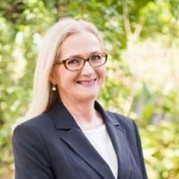New president for Queensland Collaborative Law

New QCL president Kay Feeney
Feeney Family Law director Kay Feeney has been elected president of Queensland Collaborative Law (QCL), the peak body for collaborative law practice.
Ms Feeney replaces Freda Wigan from HopgoodGanim Lawyers who served as QCL president during the past four years. Ms Wigan will remain on the executive committee of QCL as immediate past president.
Ms Feeney is also a member of the Family Law Section of the Family Law Council, Family Law Practitioners’ Association of Queensland, and the International Academy of Collaborative Professionals.
An accredited Family Law Specialist and accomplished mediator with more than 25 years experience, Ms Feeney is a proud sponsor of the QUT Feeney Family Law Prize in Dispute Resolution and the QUT Learning Potential Fund which assists students to access University.
Collaborative law is a form of dispute resolution where each spouse works with a collaborative lawyer to co-operatively resolve their legal, financial and emotional issues without going to court. (more…)
